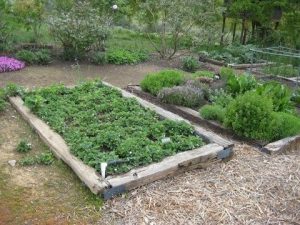Gardens have awakened from their winter slumber, and insects and weeds have awakened too! Before you grab a product to eradicate them, come up with a plan that’s the least harmful to the environment and your health. Encouraging good bugs to destroy and repel bad bugs is one element of IPM (Integrated Pest Management). In simple terms, IPM is the practice of using multiple methods to manage pests with environmentally sound approaches.
Pesticide use: If biological control doesn’t make a dent in your pest infestation, you may need to resort to more drastic measures like pesticides. A pesticide is a broad term for any material (natural, organic, or synthetic) used to control, prevent, kill, suppress, or repel pests. The term pesticide includes insecticides (insect killers), herbicides (weed or plant controls), fungicides (fungus destroyers), rodenticides (rodent killers), miticides, (mite control) and molluscicides (snail and slug killers). Consider pesticides to be a last resort and choose the least toxic product. “Broad spectrum” pesticides are more dangerous, as they do not target a specific organism. They can also kill nature’s good assailants used for biological control. Pesticides even kill organisms needed for plant health, such as pollinators like honey bees. “Selective” pesticides are safer as they kill only a few closely related organisms.
Pesticide hazards: To avoid plant injury and health hazards, always follow the label instructions exactly. Carefully consider the signal words on the label: Danger (Category I), Warning (Category II), and Caution (Category III). Don’t “overspray” onto sidewalks and driveway, or apply just prior to rainfall or during windy conditions. Be careful with herbicides for weed control; they can kill desirable garden plants.
Prevention: Yes, an ounce of prevention is worth a pound of cure! The easiest way to avoid insect damage in your garden is to discourage them from coming in the first place. A healthy garden is the best defense. Pull out weak plants and dispose away from the garden area. Build healthy, organic soil, using compost, clean mulch and natural fertilizers. Interplant and rotate crops. And remember, damaging pests cannot be entirely eliminated.
Clear garden area of debris and weeds, keep foliage dry for most of the day by watering early to discourage fungus, and try using a strong stream of water from a hose, or barriers and traps to remove insects. Disinfect your tools before moving on to other garden areas to prevent spreading disease.
Don’t clean pest control equipment in a location where rinse water could flow into gutters, storm drains, or open waterways. Only apply the rate listed on a pesticide label. Never use pesticides labeled for “outdoor use only” indoors. Do not use pesticides labeled for use on ornamental plants on plants that will be eaten.
Finally, dispose of the product properly! The only legal way to dispose of pesticides is to take them to your local household hazardous waste disposal facility. Tuolumne County Solid Waste Division has two household hazardous waste collection days coming up. For Sonora the dates are Saturday June 12th and Saturday Sept. 18th. Call (209) 533-5588 for drop off appointments and a list of the materials allowed.
Kathy Nunes is a Master Gardener who reminds herself to tolerate imperfections while letting nature take its course.
Sponsored by:


